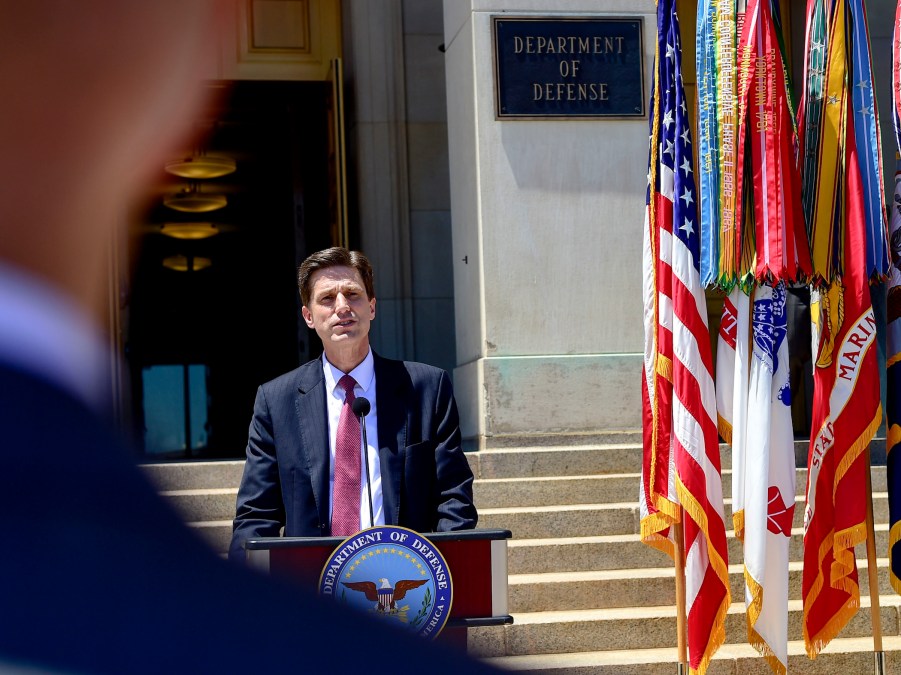JEDI protests are holding back DOD’s vision for enterprise cloud, CIO Deasy says

As protests of the Department of Defense’s Joint Enterprise Defense Infrastructure (JEDI) cloud contract continue to delay an award, and therefore any work under the acquisition, it could hurt the military’s vision for breaking away from using one-off clouds in favor of a departmentwide approach, CIO Dana Deasy testified Tuesday.
“The biggest thing we’re losing right now is the Department of Defense needs to bring data and integration together,” Deasy said in a House Armed Services subcommittee hearing when asked about the impact of the protests.
“Our enterprise cloud for the first time allows us to establish a common platform where we can bring data together in a common way,” Deasy said. “What will happen is the longer we delay standing up a JEDI capability, the military services are going to need to go solve for mission sets and they’re going to continue to stand up their own individual environments, and I don’t see that as beneficial over the long term to the department.”
Deasy framed those comments in the department’s vision for a “general purpose” enterprisewide cloud in JEDI versus smaller, “fit-for-purpose” clouds for unique capabilities that fall outside of JEDI. This is the language DOD introduced recently in a new cloud strategy.
Once the department has an award made to a cloud contractor and “a direct line of sight as to how soon we’ll be able to stand up a general purpose cloud capability,” the CIO’s office will be able to give the rest of the DOD a 60-day heads-up about “when we’ll actually be able to go live,” Deasy said. After that, the DOD and military services will be able to start “reporting” or lifting-and-shifting existing applications while planning how to stand up new activities in the cloud, he said.
“The fine line we’re walking right now is not to impede the need for mission success where people are standing up in the cloud, but as soon as we can provide clarity to the DOD on when the enterprise cloud will be available, to then redirect those activities onto JEDI,” Deasy said. “The big thing hanging out there right now is until we know what that architecture and that cloud is going to look like, it’s very difficult to start estimation exercises.”
Deasy’s comments come soon after yet another twist in what’s been a drama-filled JEDI acquisition. Last week, the judge presiding over Oracle’s pre-award lawsuit against JEDI granted an unopposed motion from DOD to stay the litigation as the department investigates new information regarding conflicts of interest. A redacted court filing shows that the Pentagon’s probe involves a former DOD employee, Deap Ubhi, who played a role in the development of the JEDI acquisition. Ubhi was an Amazon Web Services employee before joining the Pentagon’s team and then since returned to AWS, claiming to have recused himself from work related to JEDI.
Rep. Jim Langevin, D-R.I., noted that his Intelligence and Emerging Threats and Capabilities Subcommittee got that news from press reports rather than hearing it first from DOD.
“It would be an understatement to say that I was frustrated that the subcommittee and our staff had to learn about the development from a presser rather than from department staff,” Langevin told Deasy. “We really do expect and anticipate better communication from the department going forward.”
Langevin was also “frustrated that we haven’t moved it along more quickly,” he said of the contract’s pace of development.





